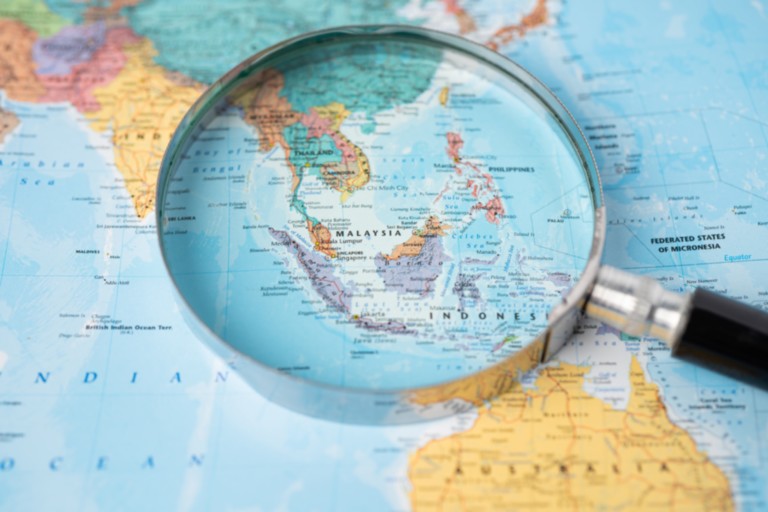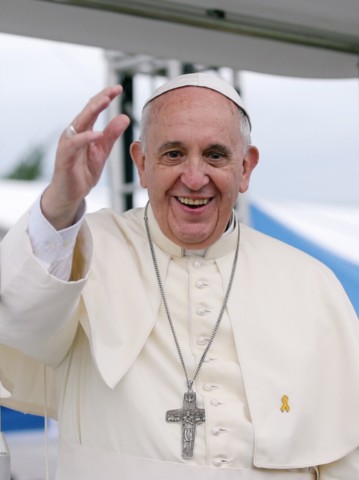Why Does Asia Seem So Important in the Eyes of Pope Francis?

From the very beginning of his pontificate, Pope Francis has insisted on the need for Catholics to "go out to meet the peripheries" of the Church, and with his numerous trips to Asia, the Pope has indeed put his words into action. This upcoming visit will be his fifth trip to Asia. He visited Korea in 2014, Sri Lanka and the Philippines in 2015, Myanmar and Bangladesh in 2017, and Thailand and Japan in 2019.
But why is Asia so important in the eyes of Pope Francis? Why does he believe that the future of the Church lies in Asia? His numerous visits to the Asian continent, and his many appointments of Asian prelates to the Roman Curia and nunciatures in recent years, seem to demonstrate an Asian pivot, indicate new priorities for the Vatican, and confirm the particular importance this Pope places on the least Christian but most populous continent.
Francis has long been fascinated by Asia. There has been talk of his personal attachment and his desire, when he was young, to go as a missionary to Japan. Certainly, but the real reason is not there. Francis' interest in Asia is less sentimental than geopolitical. Christians represent only 7% of the population in Asia-Pacific, compared to 86% in America, 76% in Europe, and 63% in sub-Saharan Africa, but their proportion has more than doubled in a century. The Catholic Church, like Christianity in general, shows rare dynamism in Asia. The number of its priests and nuns is increasing sharply, while it is clearly decreasing in Europe and America.
John Paul II declared in 1995: "We can pray that just as the Cross was planted in the first millennium on European soil and in the second millennium on American and African soils, it may reap in the third millennium a great harvest of faith in Asia." That was the year John Paul II gathered the largest audiences of his entire pontificate in Asia, specifically in the Philippines.
According to Pope Francis, Asia is a continent on the rise in terms of power and influence, and therefore constitutes an extremely important issue for Catholicism, as it is a continent with immense potential for evangelization. Pope Francis' repeated trips to Asia confirm the stakes that the Asian space represents for him for the future of the Church. Today, Pope Francis no longer hides that one of the priorities of his pontificate is no longer this secularized Europe that has been viewed with concern, but rather one of these "peripheries" that are at the heart of his pastoral vision, and particularly the Asian continent where, according to him, the future of Christianity will be played out.
It is a fact that the center of gravity of our planet is now in Asia, with the dynamism and rise of this continent (China, India, Vietnam, Pakistan, Korea, etc.). And Catholicism cannot completely overlook this if it wants to remain a significant global religion. From this point of view, the evangelization of the continent in the past was a failure: only 3.2% of the Asian population is Catholic, a very small minority. Unfortunately, past evangelization efforts were often violent, paying little attention to the cultural richness of these countries. Matteo Ricci, a Jesuit, already in 1682, failed to make the Pope understand the need to consent to a form of inculturation; this was the famous rites controversy.

But if Christianity weighs in Asia, it is more by the nature of its message than by the number of its faithful. Indeed, in Asia, where 60% of the world's population lives, Christians remain very much in the minority. They are often just a drop in the ocean of Hinduism, Buddhism, Taoism, or Islam. On the other hand, unlike in Europe where it is in crisis, Christianity in Asia is striking because it is associated with values of modernity, democracy, and freedom, while Buddhism, Hinduism, and Confucianism appear less in touch with reality.
Christianity also has a good image in Asia and is very involved in social matters. In Hong Kong, for example, Christians represent 5% of the population, but 25% of schoolchildren are educated in a Catholic institution. This is even more true in India, where the social sector benefits from a strong presence of Churches. This is proof that Catholicism still has a say on this continent, provided it knows how to immerse itself in the culture of these populations and does not present itself as an imported religion. This is the whole bet of Pope Francis.
For Pope Francis, Asia is therefore the land of the future for Christianity. The Churches of Asia, a land of multiculturalism, are, according to him, missionary Churches. A few years ago, he made this appeal to the Federation of Asian Bishops' Conferences: "Continue to go out to meet other religions and cultures, while preserving the uniqueness of each Church. The cultural and religious diversity of your continent has charted the path for the Catholic Church, faced with many challenges everywhere."